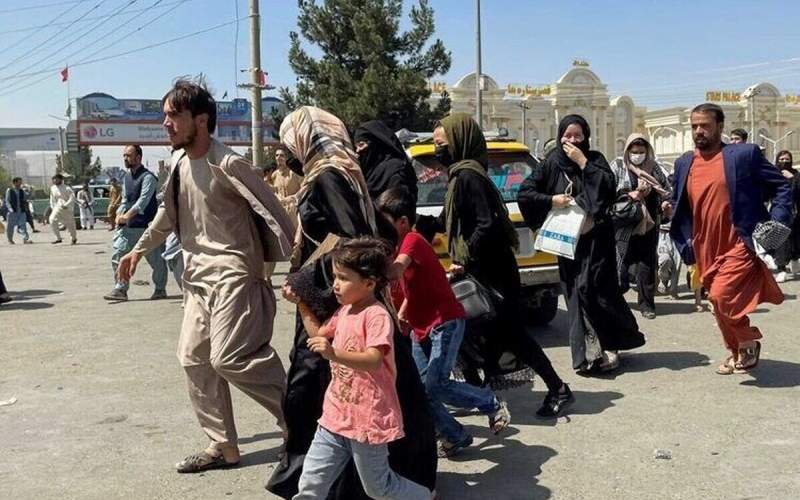The Iran Project
: An Iranian delegation, headed by Foreign Minister Hossein AmirAbdollahian, is participating in the second Global Refugee Forum which is being held from December 13 to 15 in Geneva, Switzerland.
Wednesday 13 December 2023 - 19:39
Story Code : 408703
Source : Tehran Times
Iran attending Global Refugee Forum 2023
The head of the National Organization for Migration, Abdollah Mobini, who is also attending the Forum, had previously announced that nearly 670,000 out of around 4,300,000 authorized foreigners are students, some 200,000 of them are university and seminary students, and some 35 percent, that is 1,500,000, are women.
More than 300,000 registered nationals are children who are under six. The majority of the refugees are Afghan nationals, but there are also nationals of other countries such as Iraq, Pakistan, and Bahrain. Foreign nationals in Iran are from about 80 countries, and non-Afghans nationals make up almost 10 percent of all foreign nationals in Iran.
Global Refugee Forum
Held every four years, the Forum is the world’s largest international gathering on refugees. It is designed to support the practical implementation of the objectives set out in the Global Compact on Refugees: Ease pressures on host countries, enhance refugee self-reliance, increase access to third-country solutions, and improve conditions in countries of origin.
It provides the opportunity for States and stakeholders to announce concrete pledges and contributions, highlight progress made, share good practices, and take stock of the challenges and opportunities ahead.
The 2023 Forum is co-convened by five States – Colombia, France, Japan, Jordan, and Uganda, and co-hosted by the Government of Switzerland and UNHCR.
This forum is considered the most important meeting at the global level in the field of responding to the refugee situation in the world, and the representatives of the countries hosting the refugees, as well as the representatives of the governments and non-governmental organizations, are present in this meeting.
IOM to share Iran experiences with other nations
On November 26, the chairman of IRCS, Pir-Hossein Kolivand, said the Iranian Red Crescent Society (IRCS) is ready to cooperate with other nations and share its experiences in providing services to refugees and immigrants.
He made the remarks in a meeting with Lalini Veerassamy, the Chief of Mission of the International Organization for Migration (IOM) in the Islamic Republic of Iran, IRNA reported.
Stating that the IRCS continues supporting and implementing activities in favor of refugees, he added, “Today, international institutions have a political attitude towards refugees and immigrants, and a fair approach has not been adopted in this regard yet.”
The officials discussed the international challenges regarding refugees in this meeting, “Despite all these issues, Iran, particularly the IRCS, is trying to provide the best services to refugees and immigrants. A typical example is the services provided to Afghan refugees,” Kolivand said.
He went on to say, “Today, Afghan refugees are provided with the same services as Iranian citizens in health, treatment, social and cultural fields. Therefore, it can be said that the provided services to refugees in Iran are unparalleled in the world.”
Kolivand stressed that all these are done without any expectations, merely out of a humanitarian perspective. While other countries, receiving substantial funds from international organizations to help refugees, fail to provide the same services.
Appreciating the services provided to Afghan refugees, Veerassamy stated Iran hosts millions of immigrants and refugees.
Although managing and organizing these foreign nationals is very difficult, the immigrants are well-treated in Iran.
She added that the International Organization of Migration will help the IRCS because of common objectives. “We will try to alleviate the sufferings and hardships of the refugees through favorable cooperation.”
“We will make efforts to introduce Iran's exceptional services to refugees to the world and introduce Iran as a leading and successful country in managing immigrants,” Veerassamy concluded.
Official statistics say around five million Afghan nationals live in Iran, about one million of them live in Khorasan Razavi province, mostly in the capital city of Mashhad.
For over four decades, Iran has been hosting one of the largest and most protracted refugee situations in the world and has provided asylum to refugees, mostly from Afghanistan.
The recent fast-paced turn of events in Afghanistan has the potential to create additional population movements; internally displacing families and potentially driving them to neighboring countries to seek refuge.
No more capacity for refugees
In November, Mobini said Iran no longer has the capacity to accept new immigrants, and if the international community does not bear the responsibility for supporting refugees in Iran, most of them will migrate to European countries.
He made the remarks at the 114th Session of the Council of the International Organization for Migration (IOM) in Geneva, held from November 27-29, IRNA reported.
Highlighting the disproportionate burden of hosting refugees by the international community, Mobini said, “Iran has far exceeded its share in hosting and supporting refugees; the international community should consider the fair distribution of this international responsibility.”
Migration is driven by several factors, including political, and military interventions and climate change in the neighboring countries of the Islamic Republic of Iran, in the shadow of the military interventions of extra-regional countries in Afghanistan and Iraq; Iran has hosted several million refugees and displaced persons for more than four decades, he added.
Mobini went on to say, “Security and economic problems and constraints such as banning male and female students from studying have been among the reasons for the displacement of Afghan nationals and their migration to neighboring countries.”
Reporter : Editorial of The Iran Project
# Tags











